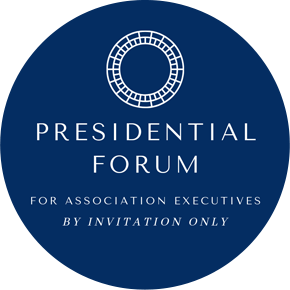Survey Results, CFO/COO Roundtable (October 15, 2020)
See Link for Full Results:
2. What do you consider your biggest challenge(s) in the financial planning process? (e.g.,
including department managers in the process, working with multiple versions or scenarios, other)
• Preparing multiple budgets to accommodate multiple scenarios surrounding revenue sources and unknown factors; esp revenue from events and online learning.
• Department managers understanding their roles and responsibilities.
• Uncertainty and every changing environment
• Including department managers in the process because they are dispersed within several time zones.
• Managers seem to expect business as usual (they want the same level of resources for their 2021 budgets ), but we may not be able to support this.
• Departmental manager foresight.
• New programs that might come up.
• Forecasting the unknown.
• Combining budgets for Events and the overall Association and still limiting the view to affected parties. Also, having a good method for review and adjusting the next forecasted year.
• Getting non-financial people to understand budgeting.
• Formatting & generating report in a format presentable to management without exporting to excel.
• Understanding the drivers – what are they for each line item; what is the sensitivity of that driver to the outcome; how to better predict based on the drivers and other inputs to the
process.
• Accurate budgets within budget assumptions.
• Obtaining agreement on the program data drivers.
• Decentralization of the budget process to get non-financial managers and directors to take ownership of the process and outcomes and results.
• Realistic assumptions especially during pandemic.
• After creating assumptions making the necessary cuts or additions to multiple scenario budgets.
• Unknowns stemming from COVID-19.
• Budget knowledge by program managers Creating multiple scenarios.
• No one taking ownership of the process; department managers being asked to participate in the process but not truly being allowed to and also not being held accountable; Finance doesn’t receive budget until 3rd or 4th quarter for import into system so managers can’t track their progress but they’re supposed to know where they stand, makes it hard for dept. managers and finance to have monthly meetings on the topic.
• Determining the different scenarios and agreeing on which one is the most probable to budget.
• For 2021 it is working with multiple scenarios for our annual conference.
• Determining Revenue.
• Scenario planning for uncertainty.
• Total unknowns from the economy, market, supply chain, and operating perspective. Total lack of transparency and truth coming from the government – regardless of political party.
• Not having a budget software.
• Biggest challenge is the number of unknowns. How has individual behavior changed? How have corporate budgets changed? And how do things continue to change.
• Planning in advance and finding opportunities to generate new revenues.
• Integrating the accounting software and Excel. Updating actuals as we go through the budget process and projected end of year figures.
• Getting buy-in to change our process!
• uncertainty around our annual conference (revenues and costs both in flux), helping Board understand the importance of a balanced budget.
• Finding a way to manage expenses without the clarity around travel / meetings in 2021.
• Working with non-financial managers to develop their budgets.
• Getting accurate information for forecasting.
• getting dept managers involved.
• Including department managers in the process.
• Budget managers not knowing how to budget or wanting to take the time to do a detailed budget.

CPE Compliance Disclosure:
COURSE DESCRIPTION:
In this course, you will learn best practices for Associations to budget, forecast, scenario plan, and program performance evaluation.
LEARNING OBJECTIVES:
- Learn about budgeting tools and periodic forecasting
- Learn about best practices for financial planning
- Learn impact of COVID-19 on the financial-planning process for 2021
INSTRUCTOR(S): Moderated Roundtable discussion of invited Association CFOs and COOs led by Eileen Fox, Chief Financial Officer, Association of American Universities (AAU) and Jeremy Zissman, VP Finance, American College of Gastroenterology (GI).
DELIVERY METHOD: Group live presented online due to COVID-19
CPE CREDITS: 1.5
LEVEL: Intermediate
NASBA CATEGORY: Finance
CAE Field of study: Administration
PREREQUISITES: C-Level Management Experience
In accordance with the standards of the National Registry of CPE Sponsors, CPE credits have been granted based on a 50-minute hour.
U.S Transactions Corp. (CPE Sponsor ID: 138278) is registered with the National Association of State Boards of Accountancy (NASBA) as a sponsor of continuing professional education on the National Registry of CPE Sponsors. State boards of accountancy have final authority on the acceptance of individual courses for CPE credit. Complaints regarding registered sponsors may be submitted to the National Registry of CPE Sponsors through its website: www.NASBARegistry.org.
